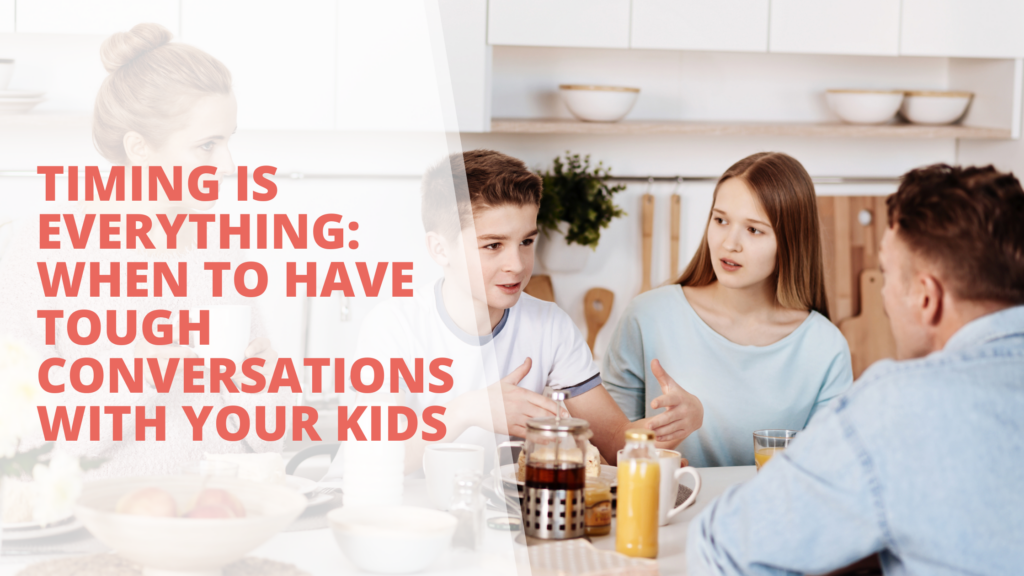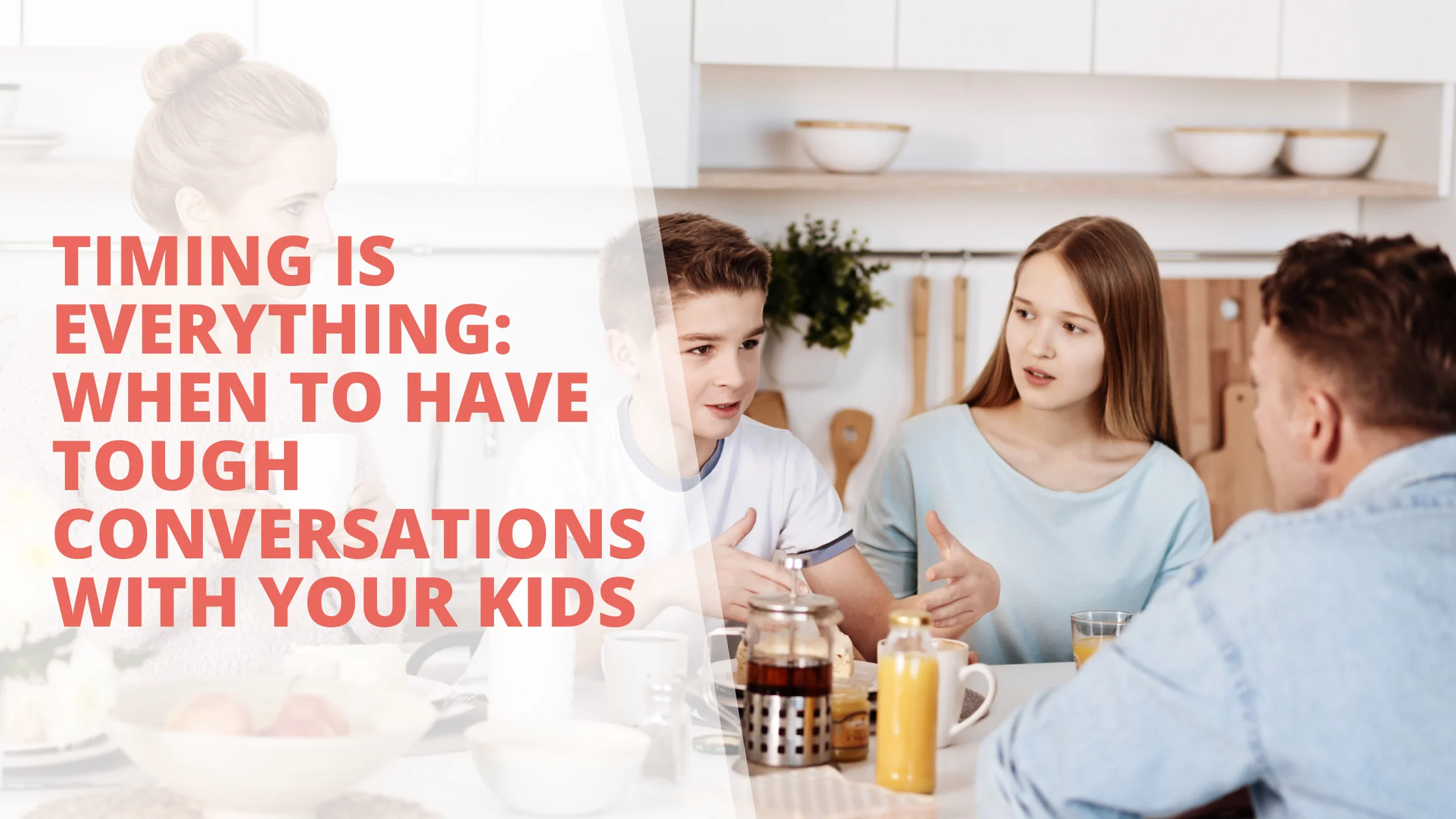
As parents, we have countless conversations with our children every day. Some are lighthearted—about their favourite games, what they learned at school, or what’s for dinner. Others are heavier, tackling topics that require thought, care, and, most importantly, good timing.
The truth is, timing is everything. Bringing up a difficult topic at the wrong moment can lead to defensiveness, overwhelm, or emotional shutdown. But wait too long, and you risk missing the opportunity for a meaningful and productive discussion. So, when is the right time to have tough conversations with our kids? Let’s explore.
When Your Child Has Done Something Wrong
Imagine your child gets a detention at school. It’s not great, but it’s also not the end of the world. They aren’t heading to jail; they just made a mistake. So, when do you bring it up?
- Immediately after school? Probably not. They may already be anxious, defensive, or frustrated. Confronting them right away might trigger an argument rather than a conversation.
- After some food and downtime? Yes. Research suggests that when children are emotionally charged, they struggle to process information clearly and logically. Giving them time to eat, relax, and feel safe first can lead to a more productive discussion.
- At the dinner table? Unlikely. This could embarrass them in front of siblings or other family members and may lead to shame rather than reflection. Instead, find a quiet moment where they feel comfortable and heard.
The Best Approach
Try opening with something like: “Hey, I saw that you got detention today. I’m not mad, but I’d love to hear what happened when you’re ready to talk.” This gives them a chance to process their emotions and come to the conversation with a clearer head.
When You Have Bad News to Share
Some conversations are even harder—telling your child you’ve lost your job, that a loved one has passed away, or that a big change is coming. These discussions require deep empathy and careful timing.
Consider These Factors:
- Is your child in a safe and comfortable space? Avoid breaking big news on the way to school or before a big event where they can’t process their emotions properly.
- Are you emotionally ready? Children take cues from their parents. If you’re overwhelmed with emotion, it may be best to take a moment to compose yourself before talking.
- How much do they need to know right now? You don’t have to give every detail immediately. Tailor your conversation to their age and understanding.
For example, if a family member has passed away, a gentle approach might be: “I need to talk to you about something sad. Grandpa passed away today. I know this is hard news, and we can talk about it whenever you’re ready.” Then, give them space to process.
When Should Tough Topics Be Brought to the Dinner Table?
The dinner table is a fantastic place for connection, but not all conversations belong there.
Topics to Save for Another Time:
- Personal discipline issues (e.g., detentions, bad grades, trouble at school)
- Extremely emotional or distressing news
- Private conversations that might cause embarrassment
Topics That Work Well at the Dinner Table:
- General life lessons (“What’s the hardest lesson you’ve ever learned?”)
- Family values and decision-making (“How do we handle mistakes in our family?”)
- Open-ended discussions (“If you were in charge of the school, what rule would you change?”)
By choosing the right setting for each conversation, you can foster a home environment where children feel safe, respected, and heard.
How The Table Talk Project Can Help
The Table Talk Project provides a space for families to have meaningful conversations in the right setting. Whether it’s discussing values, life lessons, or simply checking in with each other, the project encourages open and thoughtful dialogue that strengthens relationships. By creating intentional moments for connection, families can navigate even the toughest conversations with care and understanding.
Final Thoughts
Tough conversations are part of parenting, and while they’re never easy, choosing the right timing can make all the difference. Whether it’s waiting until your child has calmed down, ensuring they’re in a safe space, or deciding if a discussion belongs at the dinner table, being mindful of the moment sets the stage for meaningful connection.
And let’s be honest—sometimes, the perfect moment doesn’t exist. If in doubt, trust your instincts, lead with love, and remember that no conversation is more important than the relationship itself.
So, next time you have something tough to talk about, take a breath, find the right moment, and start the conversation. You’ve got this.

